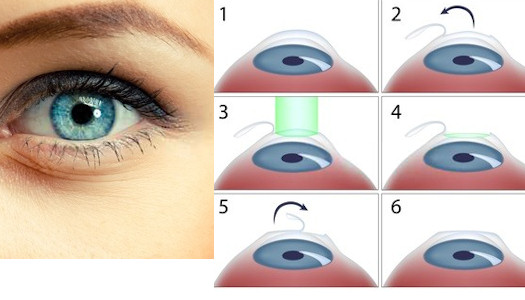Benefits and Risks of Laser Eye Surgery
Laser eye surgery called LASIK surgery is a procedure that either reduces your dependence on glasses or contacts or completely removes the need for them all together. The thought of getting a laser taken to the eyes may not sound quite pleasant, and there are some dangers of laser eye surgery, but many patients are mostly pleased with the results.

Like some surgeries, laser eye surgery is not for everyone. Although it is possible to help the majority of people with eyesight problems, there are some people who will not find laser eye surgery beneficial. Only your eye doctor will know what exactly is wrong with your eyes and whether or not it is something that can be fixed through Lasik surgery. Most doctor’s such as Angelo Cuzalina suggest fully researching your options as well as following your doctors recommendations before going through any surgical procedure.
In addition, it is best to know that laser eye surgery is generally not performed until someone’s eyes have stopped changing. Normally, when we grow old, our eyes reach a point where they will not get worse for a long time. At this level, many people determine to have corrective laser eye surgery, so they have the opportunity to see normally again without the use of contact lenses or glasses.
A Brief Insight into the Procedure
The picture above will help you understand the procedure of laser eye surgery clearly. First, a knife, referred to as microkeratome cuts the flap in the cornea. At this level stroma, the middle part of the cornea is now exposed. The laser is exposed to attention, destroying some of the stroma and changing the overall shape of the cornea. The flap is replaced and the surgery is over. The procedure takes only a few minutes (with the preparation and completion of the operation takes about half an hour) and is essentially painless. The laser of both eyes can also be done on the same day and it is not necessary to stay in the hospital.
Because the person getting the surgery is obviously still awake when receiving the laser, the patient may be asked to stare at a light or object. The ability to keep your eyes to focus on a specific object is critical to the success of this operation, because it allows the doctor to work easily. After the laser finishes its work, a protective shield is placed above the eye of the patient so that the patient does not scratch or rub it accidentally. It takes about 8 weeks to recover.
Like all other surgical procedures, laser eye surgery has some risks and benefits associated with it. Here we discuss them briefly:
Benefits
1. The first and the most obvious, you will not have to look for your glasses and your contacts every time you need to look at the clock.
2. You will easily be able to read subtitles in the lit TV screen.
3. You can actively engage in sports without the fear or breaking your glasses or contact lenses.
4. You can swim and dive without the fear of losing your contact lenses.
5. No more irritated and dry eyes that are a result of wearing contacts for too long.
6. And say goodbye to the risk of an eye infection that looms large if the lenses are not cleaned properly.
The benefits are endless actually. It is saying goodbye to glasses and lenses and getting back your good old eyesight.
Risks
Although laser eye surgery has improved vastly in the recent years, and is much more affordable and safe, it is not suitable for everyone. However, the risks are not ones that cannot be unsolved. Medications and post-treatment care with some amount of patience is generally enough to solve them.
1. People with an eye disease, or pregnancy or diabetes have increased risk of complications during the surgery.
2. After the laser treatment, there are chances of complications, such as seeing “halos” around lights, double vision or dry eyes. This can be quite serious if not treated in time with the right medication.
3. Another disadvantage of the treatment is that for a short period of time the patient might suffer from dry eyes, corneal irritation or sensitivity to light. This should be solved after some time and require only prescribed eye drops.
4. There is a temporary rise in eye pressure after the treatment. If it is prolonged, it might require minor surgery to correct.
5. There is a slightly increased risk of cataracts later in life.
Disadvantages
Other than the risks above, there is one disadvantage of laser eye surgery that can be managed by properly timing your surgery.
For about 8 weeks after the treatment, the patient will not be able to participate in swimming activities, sit in a scorching bath, participate in contact sports or put on eye makeup.
As mentioned earlier, this would only pose a problem if a certain event is coming up and you can take care to time your surgery ahead to avoid any such thing.


